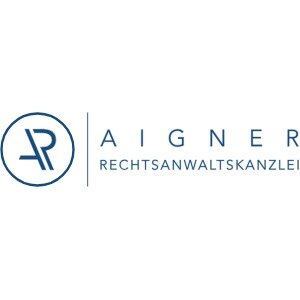Best Banking & Finance Lawyers in Austria
Share your needs with us, get contacted by law firms.
Free. Takes 2 min.
Or refine your search by selecting a city:
List of the best lawyers in Austria
About Banking & Finance Law in Austria
Banking & Finance law in Austria regulates the operation of banks, financial institutions, and financial markets. The Austrian financial regulatory environment is robust, aligning with European Union directives and regulations while maintaining a strong national legal framework. The main regulatory body overseeing this sector is the Financial Market Authority (FMA), which ensures compliance and stability within the financial system. Austria’s banking sector is well-developed, offering a wide range of services while being committed to transparency, customer protection, and anti-money laundering efforts.
Why You May Need a Lawyer
There are several situations where individuals or businesses may require legal assistance in Banking & Finance:
- Loan Agreements: Legal guidance can help ensure that loan terms are clear and enforceable.
- Regulatory Compliance: Businesses need to comply with both domestic and EU regulations, a lawyer can help navigate these complex laws.
- Investment Advice: Understanding investment risks and securities law can prevent future legal issues.
- Bankruptcy and Restructuring: Legal advice is crucial for navigating insolvency laws and restructuring options.
- Fraud and Disputes: Legal expertise is essential when dealing with cases of fraud or financial disputes.
- Cross-border Transactions: Involvement in international banking may require advice on differing legal frameworks.
Local Laws Overview
Austria’s Banking & Finance laws include several key aspects:
- Financial Market Supervision Act: Governs the activities of the FMA and sets the framework for financial market supervision.
- Banking Act: Defines bank operations, licensing, and supervision to ensure financial stability and protect depositors.
- Payment Services Act: Implements EU-wide rules for secure and efficient payment systems.
- Securities Supervision Act: Regulates the securities market to prevent market abuse and protect investors.
- Capital Markets Act: Focuses on the functioning and supervision of capital markets, including issuing and trading securities.
Frequently Asked Questions
What is the role of the Financial Market Authority (FMA) in Austria?
The FMA is the regulatory body responsible for supervising banks, insurance firms, pension funds, and securities markets. It ensures compliance with financial market laws and regulations, promoting stability and transparency.
What are the licensing requirements for banks in Austria?
Banks must obtain a license from the FMA, complying with capital adequacy, risk management, and anti-money laundering requirements. Strict adherence to these regulations ensures operational credibility.
How do Austrian laws protect consumers in banking transactions?
Austrian laws emphasize consumer protection through transparency, fair treatment, and secure financial transactions. The Payment Services Act and consumer protection regulations are crafted to safeguard customers.
Can a non-EU citizen open a bank account in Austria?
Yes, non-EU citizens can open bank accounts in Austria, though the process may require additional documentation compared to EU citizens, such as proof of residence and identification.
What are the penalties for breaching banking regulations in Austria?
Penalties for non-compliance with banking laws can include fines, revocation of licenses, or other regulatory actions depending on the severity of the breach.
How does Austria handle digital banking and fintech innovations?
Austria supports digital banking and fintech innovations within a regulated framework to ensure security and compliance. The FMA oversees these developments and issues relevant guidelines.
What measures exist against money laundering in Austria?
Austria has comprehensive anti-money laundering laws, requiring banks to conduct due diligence, report suspicious activities, and establish internal controls to combat money laundering.
Are there any specific tax considerations for banking transactions in Austria?
Banking transactions may be subject to various taxes, such as capital gains tax and corporate tax. Understanding the taxation framework can prevent legal issues.
What legal procedures exist for resolving banking disputes?
Banking disputes often involve negotiation, mediation, or litigation. Austrian law provides mechanisms like the Ombudsman for Financial Services for customers seeking resolution.
Is it necessary to hire a lawyer for investment-related legal matters?
Hiring a lawyer for investment matters can be beneficial, as they provide insight into securities law, risk management, and compliance with both national and EU investment regulations.
Additional Resources
For more information, consider consulting the following resources:
- Financial Market Authority (FMA): The main regulatory body supervising financial markets.
- Oesterreichische Nationalbank (OeNB): Austria's central bank, providing economic and financial statistics.
- Federal Ministry of Finance: Offers guidelines on financial policies and regulations.
- Chamber of Commerce Austria: Provides support and resources for businesses, including banking and finance sectors.
Next Steps
If you require legal assistance in Banking & Finance in Austria, consider taking the following steps:
- Identify the specific nature of your legal need, whether it's related to loans, investments, or compliance.
- Research and consult with a specialized Banking & Finance lawyer or law firm in Austria to discuss your case.
- Prepare relevant documentation and details to present to your legal representative for a thorough understanding.
- Stay informed about ongoing changes in Banking & Finance laws that may affect your situation.
Lawzana helps you find the best lawyers and law firms in Austria through a curated and pre-screened list of qualified legal professionals. Our platform offers rankings and detailed profiles of attorneys and law firms, allowing you to compare based on practice areas, including Banking & Finance, experience, and client feedback.
Each profile includes a description of the firm's areas of practice, client reviews, team members and partners, year of establishment, spoken languages, office locations, contact information, social media presence, and any published articles or resources. Most firms on our platform speak English and are experienced in both local and international legal matters.
Get a quote from top-rated law firms in Austria — quickly, securely, and without unnecessary hassle.
Disclaimer:
The information provided on this page is for general informational purposes only and does not constitute legal advice. While we strive to ensure the accuracy and relevance of the content, legal information may change over time, and interpretations of the law can vary. You should always consult with a qualified legal professional for advice specific to your situation.
We disclaim all liability for actions taken or not taken based on the content of this page. If you believe any information is incorrect or outdated, please contact us, and we will review and update it where appropriate.
Browse banking & finance law firms by service in Austria
Austria Attorneys in related practice areas.
Browse banking & finance law firms by city in Austria
Refine your search by selecting a city.














